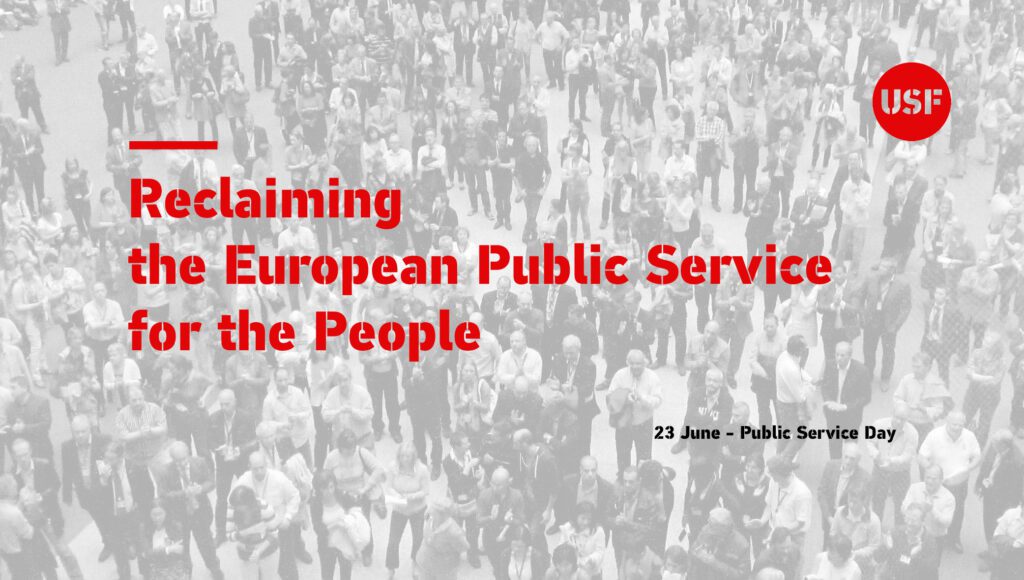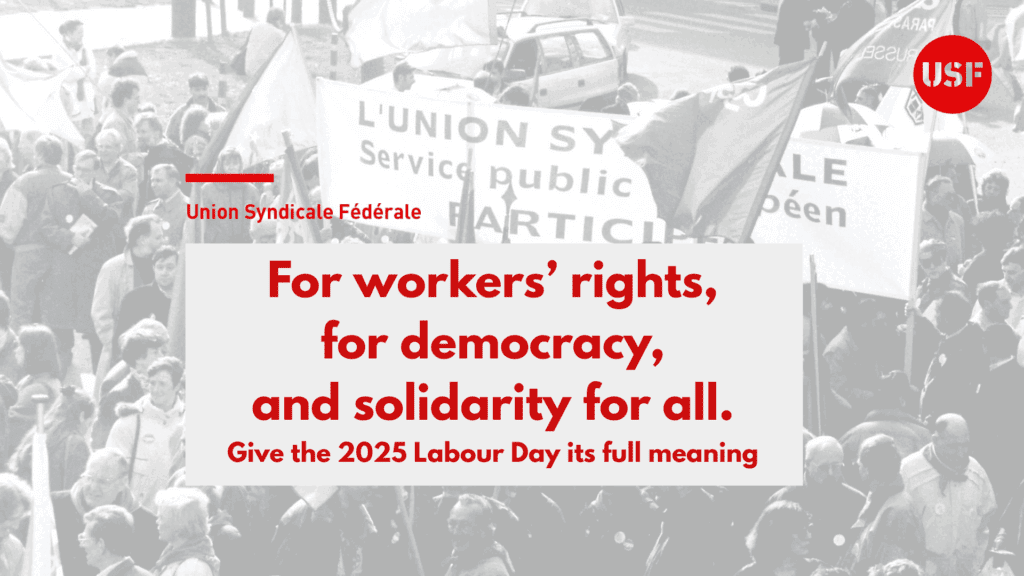Social rights : European civil servants in trouble
In 2016, the President of the European Patent Office (EPO) dismissed three elected staff representatives, all of them members of the staff union. Three other staff representatives were aggressively demoted in 2015 and 2016. Over the past four years five staff members of the EPO have committed suicide. Sheltering behind its immunity, the EPO has refused any independent enquiry by the local authorities concerned with regard to the circumstances
An article published in February 2016 on the French website “Novethic” (promoting social responsibility in enterprises) reports on the serious mental health risks for staff in the EPO and the European Central Bank. An article in January this year in the French satirical weekly Canard Enchaîné denounced the same situation. The article points to cases of suicide, burn-out, discrimination and dismissal.
Sace’s analysis
Novethic’s article clearly identifies as major contributing factors to insecurity and lack of protection in these institutions:
* they are not subject to national legislation;
* there is no external supervision of employment and working conditions;
* they are free make their own employment rules.
This state of affairs will be all too familiar to staff in the Council of Europe, where French labour law is taken as an approximate model but not as an obligation, and is definitely not followed in some areas of social rights. To take an example relating to trade unions, staff representatives in France may use up to 12 days per year of working time to engage in related activities, in the Council this is limited to one day. Other examples concern the right to training and the continual renewal of temporary contracts, but there are many more.
With respect to health and safety, there is no independent inspection of working conditions within the Council of Europe, and despite the existence of a joint body, the Health and Safety Committee (CHS), this area remains largely by Administration. The terms and conditions of employment in the Council are determined by Administration, without any obligation to incorporate Staff Committee recommendations or positions, and the statutory consultation process is becoming more of a formality each year (a most recent example being the latest early departure procedure).
SACE’s position
As SACE has always pointed out, there is a certain irony in the fact that while the Council of Europe is the home of the European Social Charter, and claims partial recognition of its application, it fails to apply it fully. SACE calls on the Secretary General to implement SACE 2013 Resolution on the Social Charter.
In a working environment marked by increasing precarity, we are in greater need of all the tools available to defend and guarantee good, equal and fair working conditions. SACE points to its Resolution adopted by the 2016 General Assembly of Staff on “A roadmap for practical improvements to employment and working conditions of staff”, which identifies the three main sources of stress in the organisation and proposes measures to minimise risks and create a positive working environment for all.
Trade union action in the case of the European Patent Office
SACE is following developments and supporting staff in both institutions, in particular through our membership of the Union syndicale fédérale (USF), which brings together staff representative bodies in 20 European organisations and agencies, among them the EPO. USF has provided financial support through a crowd-funding procedure to one of the dismissed staff members in The Hague. The SACE trade union is contributing through the USF’s collective action and we will also give direct financial support this year. We will also propose a contribution from the Staff Action Fund managed by the Staff Committee.
Recent developments – a case for close monitoring
Since the publication of the two articles, the trade unions and the USF have made appeals against the violations. Legal proceedings were engaged with the Dutch courts, and the Supreme Court finally ruled that the extra-territorial status of the organisation, like that of the Council of Europe, exonerated it from complying with applicable regulations in the host country (see attached).
On 9 May 2017, dissatisfied with this conclusion and arguing that this position could only hold if the EPO had an effective appeals procedure, the office’s trade union has now supported the introduction of an appeal to the European Court of Human Rights under Article 6 (right to a fair trial) in conjunction with Articles 10, 11 and 13. The SACE has also informed the Union syndicale fédérale that the issues certainly also come within the remit of the revised European Social Charter and that the possibility of introducing a collective complaint before the European Committee on Social Rights should be envisaged.
SACE will continue following developments and supporting the partners concerned, in particular as our trade union has doubts about the fact that our internal court, the Administrative Tribunal, does not include an appeals procedure. Indeed, it is a complicated year for social rights and European civil servants are in trouble…




